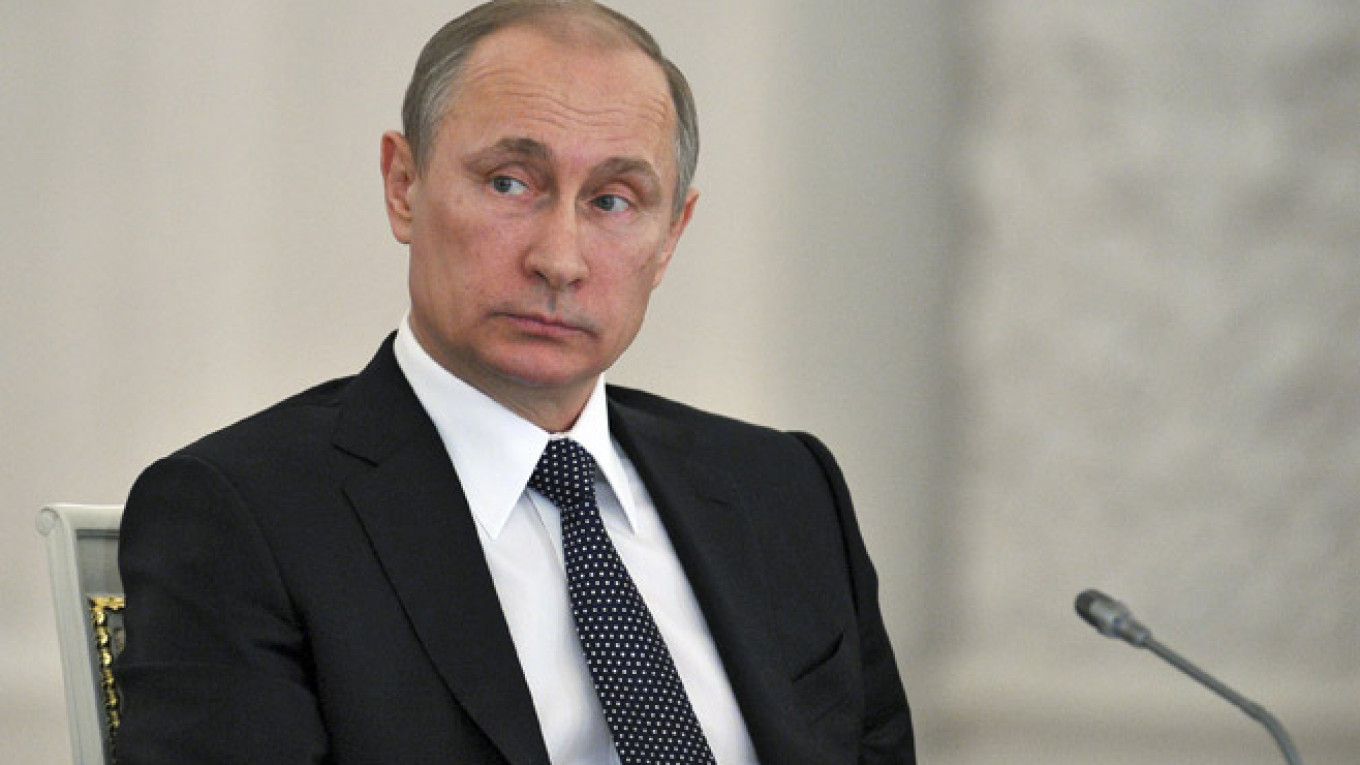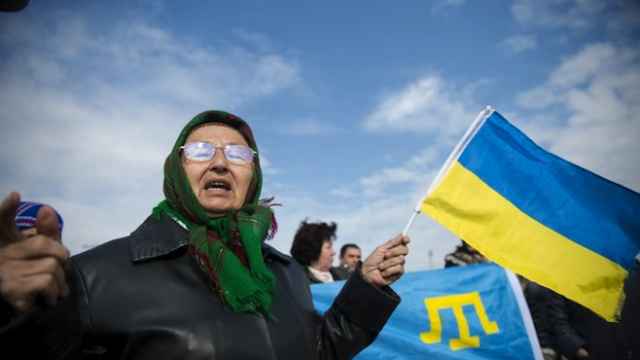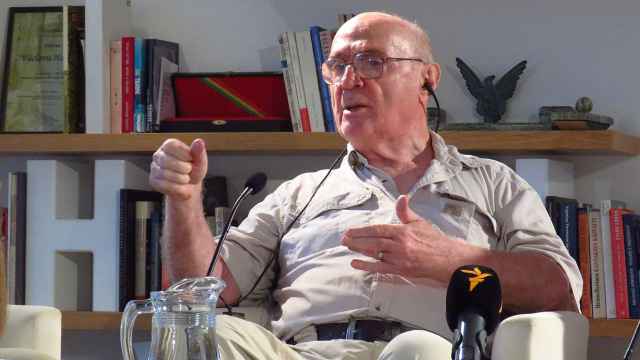President Vladimir Putin has submitted an amnesty proposal to the federal parliament that could free up to 60,000 prisoners, the Kremlin said Thursday.
The amnesty would be granted in celebration of the 70th anniversary of the end of World War II, the Kremlin said in a statement on its website.
Up to 60,000 people currently serving prison terms, and up to 200,000 people who have been convicted but who are not in prison due to probation, commuted sentences or other factors could be effected by the resolution, the Kremlin's statement said.
The Civic Chamber, a consultative board that monitors the work of legislators, said in a statement the previous day that there are about 670,000 convicts currently serving prison sentences in Russia.
The proposed amnesty could apparently affect up to about one-tenth of those prisoners.
The amnesty would not concern prisoners convicted of severe crimes, including those involving "murder, violent crimes, terrorism, extremism, kidnapping, fraud, bribe taking, crimes against children and drug-related crimes," the Kremlin said.
Russia is 10th in the world in terms of the quantity of prisoners, and the country's penitentiary system needs to be "unloaded," Andrei Babushkin, a member of the Kremlin's human rights council, was cited as saying in the Civic Chamber's statement.
Russia has amnestied about 537,000 convicts in total on anniversaries of the end of World War II — in 1995, 2000 and 2005 — state news agency TASS reported Thursday.
In 2013, tens of thousands of people incarcerated in Russia, including members of famed female protest group Pussy Riot, were amnestied in celebration of the 20th anniversary of the country's Constitution.
A Message from The Moscow Times:
Dear readers,
We are facing unprecedented challenges. Russia's Prosecutor General's Office has designated The Moscow Times as an "undesirable" organization, criminalizing our work and putting our staff at risk of prosecution. This follows our earlier unjust labeling as a "foreign agent."
These actions are direct attempts to silence independent journalism in Russia. The authorities claim our work "discredits the decisions of the Russian leadership." We see things differently: we strive to provide accurate, unbiased reporting on Russia.
We, the journalists of The Moscow Times, refuse to be silenced. But to continue our work, we need your help.
Your support, no matter how small, makes a world of difference. If you can, please support us monthly starting from just $2. It's quick to set up, and every contribution makes a significant impact.
By supporting The Moscow Times, you're defending open, independent journalism in the face of repression. Thank you for standing with us.
Remind me later.






